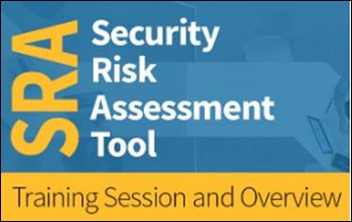Healthcare data sucks - that song turned my Friday to Friyay!!! Gave me the much needed boost to get through…
EPtalk by Dr. Jayne 7/11/19

I’ve been snarky about some of the things coming out of the White House in the last few years, but I can get behind the newly-announced effort to reduce the impact of end-stage kidney disease over the next two decades.
For a long time, there has been a push towards center-based dialysis and all the challenges that come with the procedure – patients making multiple trips to a facility each week, ongoing disability, and generally feeling crummy in between treatments. The goal is to move patients towards in-home dialysis, which can be liberating for patients who are good candidates for home-based treatment. I’ve been on cruises where patients do their own dialysis at night and participate in activities during the day without missing a beat. Not to mention that home dialysis is cheaper. Having worked with some of the dialysis giants in the past, I’m not sad to see them lose a little market share.
Medicare spends more than $110 billion on kidney care, which represents one-fifth of all fee-for-service payments under the program. The new directive includes payment models to encourage early treatment of kidney disease and advocation for home dialysis. It also includes mechanisms to refine organ procurement and a public awareness campaign to help patients realize the benefits of early diagnosis of kidney disease.
With a well-configured EHR system, it’s fairly easy to identify patients with or at risk for chronic kidney disease and start doing outreach. However, operational and clinical structures are needed to make the disease a priority among everything else practices are doing. It will be some time before all the rules and policies are in place to support this initiative, but it’s nice to see something positive coming to the healthcare community.
Last week the US government issued a new Request for Information as part of the Patients Over Paperwork initiative. The RFI seeks additional public input on regulatory, policy, practice, and procedural changes that would reduce administrative burdens for providers, patients, and families. The comment period will be open through August 12.
It looks like the feds are dragging their feet however on the Primary Care First initiative, where an application was promised in spring 2019 for a January 2020 start. I haven’t seen the Request for Application document yet and the website still shows it as pending, which is frustrating for practices and providers who were actually interested in the program. I’m guessing CMS had a bit of a premature launch on this one, based on the lack of deliverables and their ongoing rearrangement of webinars on various topics (the one scheduled for Wednesday, July 10 has been moved to July 24). Many of us are waiting for the application, which was promised to clarify various details. If you know anything about when it’s coming, leave a comment so the rest of us can play along.
My adventures in telehealth continue, so I was excited to see this article about mothers being power users of virtual medical consultation apps. I see a ton of ads on Facebook and other media targeting my demographic, and the vendors agree that women are a major audience. My brick-and-mortar practice has considered telemedicine, but hasn’t moved forward.
It would have been a great option to have the other day, when one of my provider colleagues called me to see if she could put herself on my schedule for a rash. Even though we had a phone conversation, she sent me a picture of the rash, and we discussed a plan of care, we couldn’t bill for the visit due to limitations in the EHR. Ultimately one of our medical directors took charge of the situation and got my colleague the care she needed, but in reality we were just a few clicks away from a virtual visit.
The telehealth segment is targeted to exceed $64 billion in the next six years, so it’s not surprising they are targeting family health decision-makers. Mothers make nearly 80% of the decisions around their family’s healthcare, according to a 2017 Kaiser Family Foundation study. It seems that most of the services being offered at present time are acute / urgent in nature but the smart money is on providers that are building out the true capability for virtual primary care.
I know I don’t want to go to a physician office as a patient unless I have to. Many are still highly inefficient and can suck the wind out of your sails for an entire day. I had an exception with a recent visit to the optometrist, where my physician was running late and they proactively offered a visit with another provider to keep me on schedule. I declined because I like my optometrist and he is worth the wait, but it was a nice gesture, and if I hadn’t had the day off, I might have taken the offer.

I still run into a fair number of providers who don’t understand the Security Risk Assessment that is required under HIPAA. There are some great (and reasonably priced) vendors out there who deliver white glove service, but practices still opt to go it alone or try to skip it entirely. ONC and the HHS Office for Civil Rights are holding a training session for their homegrown Security Risk Assessment (SRA) Tool. It is designed for small to medium-sized providers to help them conduct their internal security risk assessment. A webinar will be held July 17 for providers and staff to better understand the tool. They will also have the opportunity to ask questions and provide feedback. I haven’t seen the tool lately – a previous version hadn’t been updated in some time – so I hope it’s beneficial.
Speaking of ONC, the public comments on the Trusted Exchange Framework and Common Agreement (TEFCA) are now available. ONC received more than 100 comments from a variety of stakeholders, including professional societies, providers, health information technology vendors, hospitals, public health organizations, payers, patient advocates, and health information exchanges. Most of the comments are what you would expect, although there are some curveballs among the submissions. I’m still struggling to understand what one individual from Tashkent was trying to say and how it related to TEFCA. Patient Stuart Morgan is “very much against these efforts to make my medical records more readily accessible by other parties that I have no control over.” He goes on to mention the difficulties in trying to correct inaccurate records, including “information that is totally false, entered by a doctor or other medical worker who appears to have a grudge against me.”
What was surprising about the list is the number of vendors who didn’t submit comments. Perhaps in their opinion TEFCA is perfect the way it is? Or maybe they were unaware it was going on? As a provider, I would be concerned if my vendor didn’t send a comment.
What do you think about TEFCA? Leave a comment or email me.

Email Dr. Jayne.


“The kidney has a very special place in the heart” – President Trump 07/10/19
Hope a Dx patient doesn’t read how attrition is fun fodder for heartfelt sentiment.
I think there are people who care about kidney disease to the bone, and it’s not the funny bone. As if the dead serious do “whatever it takes” in a dire business.
We are one of those white-glove service, reasonably-priced Security Risk Assessment vendors out there. I must say that the update to the federal SRA tool was a great improvement. It looks like the webinar filled up, so hopefully they will offer another. The ONC/OCR offering pushes us and other vendors to ensure that we add more value, with customizable policies, and tools that go beyond the assessment to help clinics understand where to start, what’s expected and required, and how to track progress.